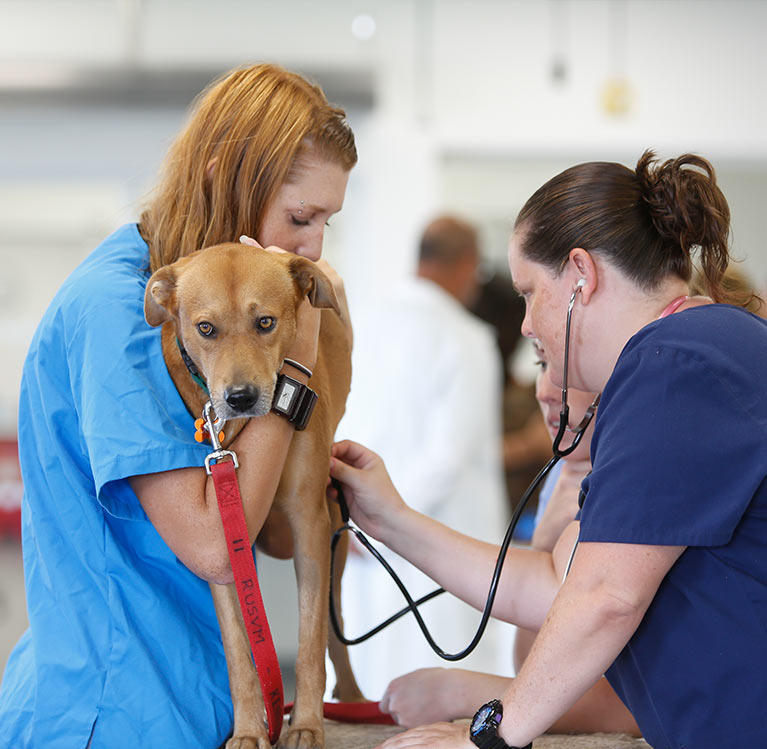Specialist Tips for Family Pet Nutrition From a Veterinarian
Comprehending the nutritional needs of pet dogs is vital for their general health and wellness and durability. Vets suggest a balanced diet regimen that accommodates specific aspects such as age, breed, and activity degree. Yet, with the wide variety of animal food alternatives offered, pet owners usually locate themselves browsing a landscape swarming with misinformation and misconceptions. As we discover important pointers from veterinary specialists, it becomes obvious that proper nutrition is not just about what is fed however entails a deeper understanding of each pet dog's unique requirements. What vital insights could change your strategy to animal nourishment?
Comprehending Nutritional Demands
Understanding the nutritional needs of animals is essential to guaranteeing their total wellness and health. Much like humans, pets require a balanced diet that offers necessary nutrients, consisting of healthy proteins, fats, vitamins, carbs, and minerals. These nutrients play important duties in different physical features, such as power production, immune reaction, and tissue repair work.
They are composed of amino acids, some of which are important and must be gotten from food. Carbohydrates offer as a main energy resource and can sustain digestion health when they consist of fiber.
Nutrients are needed for metabolic processes and keeping general health. Each pet dog may have one-of-a-kind requirements based on aspects such as age, breed, task level, and health and wellness status. It is necessary to talk to a vet to figure out the specific nutritional demands tailored to your pet dog's private demands, ensuring they get optimal nutrition throughout their life phases. Proper understanding and interest to these dietary components can dramatically add to a family pet's longevity and lifestyle.

Choosing the Right Food
It is essential to take into consideration elements such as age, health, type, and dimension status when selecting a pet dog food. Senior family pets might benefit from foods created to resolve age-related issues, such as joint wellness or weight management.
When examining pet dog food options, try to find items that fulfill the Association of American Feed Control Officials (AAFCO) requirements, which make certain that the food provides well balanced and complete nutrition. Ingredients ought to be top notch, with genuine meat as the primary resource of healthy protein. Avoid foods with extreme fillers, fabricated additives, or spin-offs, as these can interfere with the overall nutritional value.
Consulting with a veterinarian can offer tailored referrals based upon your pet dog's specific needs. Additionally, transitioning between foods need to be done slowly to prevent intestinal distress. By taking these actions, family pet proprietors can make sure that they are supplying their fuzzy buddies with the finest feasible nourishment for a delighted and healthy and balanced life.
Typical Myths About Pet Food
Exposing mistaken beliefs surrounding pet food is important for making sure ideal nutrition for our furry friends. One widespread myth is that all grain-free diets are superior for pet dogs. In fact, grains can supply vital nutrients and are not inherently harmful. A well balanced diet plan can include grains, given they are not creating any type of intolerances or allergic reactions.

In addition, several pet dog proprietors think that "costs" or "all-natural" tags assure greater top quality. These terms are typically unregulated and do not necessarily indicate superior dietary worth. It is crucial to inspect component listings and nutritional profiles instead.
Special Factors To Consider for Various Breeds
When it involves pet nourishment, special considerations have to be taken into consideration for various breeds, as each type can have distinct dietary read needs and level here are the findings of sensitivities. Large types such as Fantastic Danes and Saint Bernards are vulnerable to musculoskeletal concerns and might profit from diet plans developed to support joint wellness, usually including ingredients like glucosamine and omega fatty acids. Alternatively, small types like Chihuahuas might require greater calorie thickness to satisfy their power levels, requiring solutions that are rich in nutrients however reduced wholesale.
Furthermore, particular breeds may be inclined to specific health and wellness problems, such as food allergies or sensitivities. Types like Labrador Retrievers might fight with weight problems, calling for mindful portion control and a balanced diet plan to preserve a healthy and balanced weight. On the other hand, breeds such as Dachshunds may be a lot more at risk to spinal issues, triggering a demand for diets that promote spine health and wellness and weight monitoring.
Inevitably, understanding these breed-specific nutritional needs is vital for pet dog proprietors. Consulting with a vet can aid in selecting the most appropriate diet tailored to an individual animal's health, age, and breed status, ensuring optimal nutrition and health.
Importance of Normal Vet Exams
Comprehending the special nutritional requirements of different breeds is just one facet of liable family pet ownership; regular veterinary exams play an essential duty in preserving overall health. These exams are crucial for very early detection of health concerns, making certain that any type of prospective problems are resolved prior to they end up being serious. Normal sees enable vets to check your animal's weight, oral health and wellness, and important signs, which are critical signs of overall health.
Furthermore, regular examinations enable vets to offer customized dietary advice based upon your animal's specific health and wellness status - Animal Chiropractor Greensburg. As animals age, their nutritional demands might alter, and adjustments may be essential to stop excessive weight or nutrient deficiencies. Preventative care, consisting of vaccinations and parasite control, is likewise a basic element of these brows through, protecting your pet dog from various illness
Along with physical assessments, these consultations provide a superb opportunity for family pet proprietors to talk about behavior adjustments or concerns regarding their pet dog's eating routines. By focusing on regular vet exams, animal owners can make certain a much longer, healthier life for their hairy friends, ultimately improving their lifestyle.
Verdict
To conclude, making sure ideal pet dog nutrition needs a detailed understanding of specific nutritional needs, suitable food choice, and recognition of widespread misconceptions. Unique considerations for various breeds should be accounted for, and normal vet examinations play an important duty in keeping an eye on health and wellness and nutritional modifications. Complying with AAFCO criteria and consulting with veterinarians prior to making nutritional adjustments will certainly boost the health of pet dogs, inevitably contributing to their long life and top quality of life.
With the plethora of pet dog food choices offered, pet owners typically published here find themselves navigating a landscape raging with false information and myths. Each animal might have distinct needs based on factors such as age, type, task level, and wellness standing. It is necessary to think about elements such as age, breed, wellness, and size condition when choosing a pet dog food. Elderly pets might benefit from foods made to attend to age-related issues, such as joint wellness or weight administration.
Understanding the special dietary demands of different breeds is only one element of responsible family pet ownership; routine vet examinations play a vital function in maintaining general health.